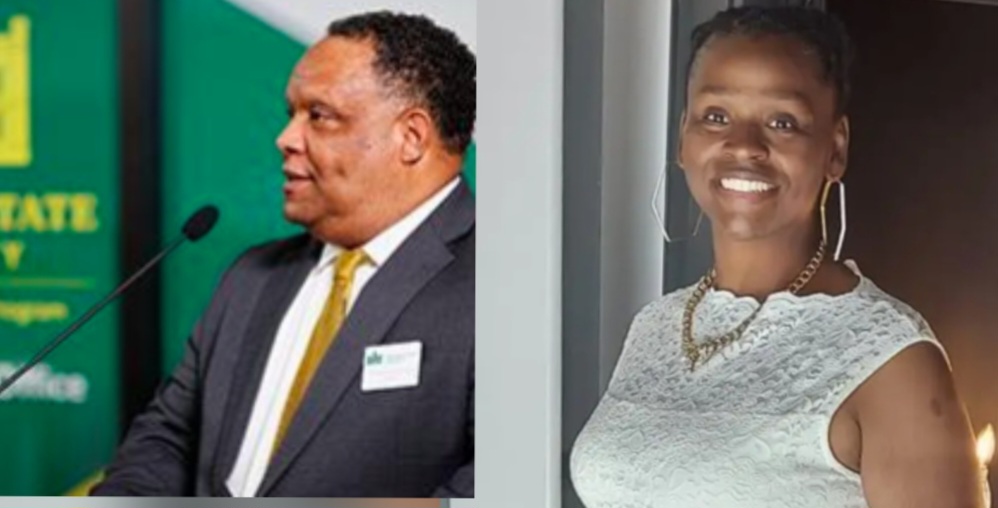Introduction:
Welcome to our latest recap from Kevin Fields and Herbert Johnson’s dynamic and enlightening Russell on the Move podcast! This time, on an episode dedicated to food insecurity, we discussed the pressing issue and our responsibility towards addressing it. The passionate conversation featured noted guests — Gill Finley, State Specialist in Community Economic Development for the College of Agriculture at Kentucky State University, and Ziberia Puryear, LCCC’s Manager of Adult and Special Poplation Services.
Tackling Food Insecurity:
The troubling concern of food insecurity has been a focal point for Gill Finley during the past couple of years. His background, rooted in agricultural experiences blended with urban sensibilities, has steered him towards using innovative approaches to tackling food insecurity. Kentucky State University is on board with this vision, looking to employ advanced technologies to boost food production and prepare for the looming threat of climate change. The 7th annual West Louisville Economic Mobility Summit, held last month, reiterated this need for a tech-forward approach.
Food Deserts and their Impact:
Finley further highlighted the issue of food deserts – areas lacking access to fresh fruits, vegetables, and other wholesome foods, usually due to the absence of grocery stores. This phenomenon results from multifaceted socio-economic factors and geographical aspects. Impoverished neighborhoods are hit hardest, often leading to a surge in crime rates as people scramble for resources. Food deserts create a vicious cycle where malnutrition, obesity, and other health hazards rapidly escalate due to limited access to healthy food.
Aligning Organizations to Combat Food Insecurity:
One of the leading issues to tackle when addressing food insecurity is ensuring that organizations are aligned and collaborative in their efforts. Currently, the variance in vision and resource distribution among organizations amplifies the issue instead of alleviating it. Finley advocates for a centralized platform, possibly a website or social media network where information about all organizations working on food insecurity can be collected and disseminated. Thus, increasing transparency and accessibility would significantly help navigate this challenge.
Community Involvement and Advocacy:
The hosts emphasized the importance of the community stepping up to tackle this crisis. As Finley states, addressing food insecurity could also contribute to reducing crime rates. Increased community involvement might encourage policy changes, paving the way for better resource allocation and greater alignment among organizations. The spotlight was particularly shone on African American children, a demographic significantly affected by food insecurity, causing behavioral issues in schools. Dispelling information about the issue could rally greater community support and initiatives to ensure no child goes hungry.
The Role of Organizations and Redistribution:
Ziberia Puryear shed light on an often-overlooked aspect of the issue – food redistribution. She outlined how organizations could utilize excess food produced at homes or businesses to those who need it. Models such as that of Rona Kamar can be emulated, which orchestrates the distribution of surplus food to families in need.
Cheers to Community Empowerment:
Host Kevin Fields spotlighted the need for a quality retail distribution center in West Louisville, which would not only support these measures but also empower the local growers and the wider economy. Such an initiative could help bridge the gap between the growers, distributors, and consumers, ensuring better access to fresh and nutritious food for residents while also bolstering the incomes of local farmers.
The Louisville Central Community Centers’ 75th Anniversary Campaign:
Amidst the discussions of food insecurity, the episode also marked the 75th anniversary of the Louisville Central Community Centers (LCCC), a milestone that speaks volumes about the organization’s commitment to serve. The LCCC took this opportunity to announce the 75-year challenge and pledge, encouraging listeners to donate in increments of $75 to support the families and children served by the center.
Conclusion:
In addressing this gnawing issue, various organizations, including Letitia Marshall’s Bear Fruit and Grow project, Feed Louisville, The Hope Buss, and Kentucky Backyard Farms, are making valiant efforts. But as our guests highlighted, a more significant, collective effort is needed to truly make a dent in the food insecurity gap that looms over many communities. The task at hand may be monumental, but with increased collaboration, community support, and effective policy changes, we can all contribute to a future where no one goes to bed hungry. As we prepare for Thanksgiving and the holiday season, let’s remember the less fortunate and seek ways to lend them our support.
Click below to listen to the podcast:
Part 1:
Part 2
